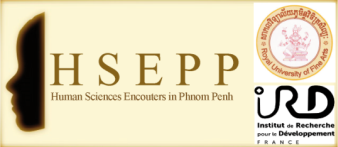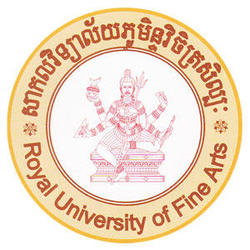Project initiators and partners
Initiators
UMI 233 trans VIH MI/INSERM U 1175
Université Royale des Beaux Arts Phnom Penh
Partners
http://sites.sas.upenn.edu/tlc/
logo tlcAgence Universitaire de la Francophonie - Bureau Asie Pacifique
HSEPP support the Manusastra Project
« Cambodian Classical Dance. An introduction to the role and techniques of an embodied practice originating from the court » By Lucie Labbé
« Cambodian Classical Dance. An introduction to the role and techniques of an embodied practice originating from the court »
By Lucie Labbé
Abstract and biodata in english :
Dance is one among a number of specifically human activities which allows to account for both unity and diversity of human kind. Nonetheless, it is only recently that it started to be fully considered as a legitimate anthropological subject. In Cambodia, classical dance originating from the royal court now exists in different contexts where it is becoming more and more visible to Cambodian people as well as foreigners in Cambodia but also, to a certain extent, internationally. Nevertheless, the rigorous complexity that still defines this embodied practice in some contexts, as well as its sociological stakes, remain less understood.
This anthropologically oriented conference based on extensive fieldwork addresses to a large audience. The roles held by classical dancers will be explained in a first part through a historical background and a comparative analysis of today’s dance teaching and stage performance in different contexts. A second part will be devoted to an introduction to the techniques and aesthetical principles of dance thanks to the participation of professional dancers from the school of Fine Arts in Phnom Penh
Lucie Labbé is a cultural anthropologist affiliated to the CASE laboratory (Centre for Southeast Asian Studies in Paris). She has conducted researches on Cambodian classical dance in Cambodia and in France for ten years. Her dissertation submitted in 2016 at the EHESS (Paris) deals with the creation of the individual through dance apprenticeship and master-student relationship. By questioning the actual social role played by dancers in Cambodia, she also highlighted the intricate relationship between dance as an esthetical production and political authority.








